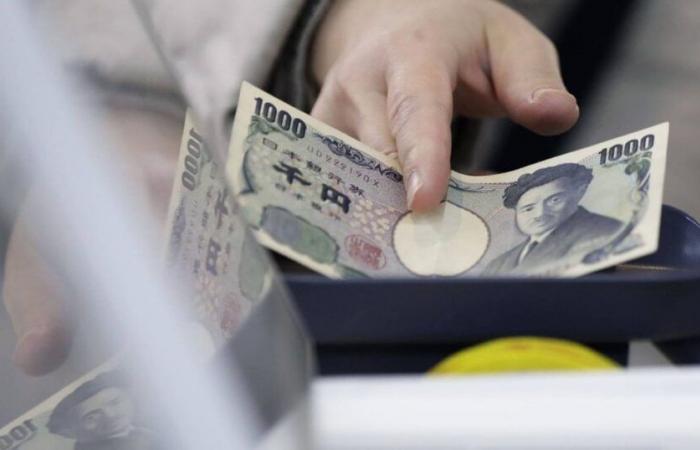Japanese domestic Yen exchange rate today May 4, 2025:
Update the latest Japanese Yen exchange rates today in banks.
The VIB bank buys Japanese yen at the lowest price of 167.74 VND/JPY
The VIB Bank buys transfers in Japanese yen at the lowest price of 169.14 VND/JPY
Pvcombank buys Japanese yen at the highest price of 184.00 VND/JPY
PVCOMBANK buys transfers in Japanese yen at the highest price of 186.00 VND/JPY
The VIB Bank sells Japanese yen at the lowest price of 175.80 VND/JPY
The VIB Bank sells transfers to Japanese yen at the lowest price of 174.80 VND/JPY
-LPBANK and OCEANBANK sell Japanese yen at the highest price of 189.88 VND/JPY.
The NCB Bank sells transfers to Japanese yen at the highest price of 188.82 VND/JPY
Global exchange rate of Japanese Yen today 04/05/2025:
The USD/JPY fell to nearly 145.00 Friday after failing to keep the important gains at the start of the week. The US dollar was weakened after being rejected at the psychological level of 100.00, bringing the DXY index below 99.50.
The markets react to mixed economic data and new signals from world trade, including the possibility that China reopens negotiations on customs tariffs and Japan call in the United States to adjust their tax policy.
The employment report in the United States of April has shown that the labor market has remained strong with a gain of 177,000 jobs, higher than forecasts, although the figures in March have been revised downwards. Unemployment remained 4.2 % and wages increased regularly by 3.8 % in the same period.
However, other indicators such as unemployment benefits and data manufacturing ISM was low, while GDP of the first quarter contracted by -0.3 %. This led investors to think that the Fed could reduce its rates in June, with four decreases planned by the end of the year.
In Japan, the Minister of Finance Kato stressed that the country could use its US government obligations as a lever in commercial negotiations, demonstrating a firmer position. At the same time, the unemployment rate increased to 2.5 %, even if the job ratio/applicants has improved. The slowdown in wage growth also strengthens the hypothesis that the Banque du Japan will maintain its monetary easing policy at least until 2025.






